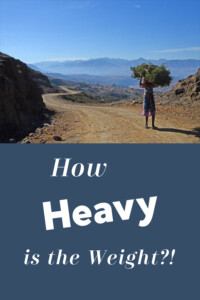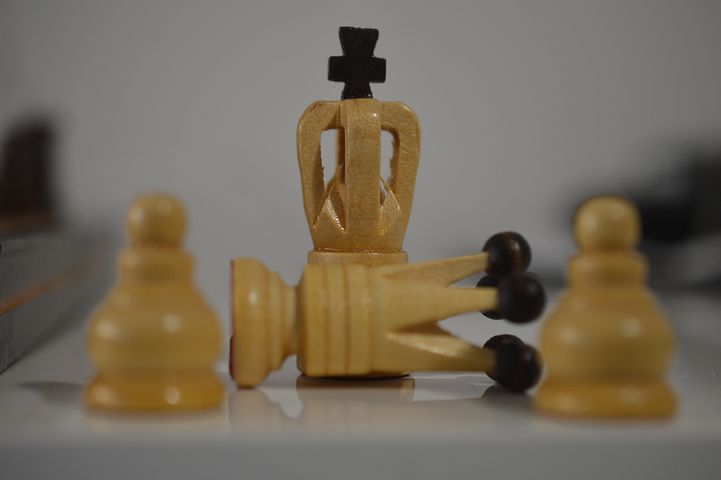How Heavy is the Weight?
 Does time affect weight?
Does time affect weight?
The professor asks his class, “How heavy is the weight of this water?”
Students guess different answers.
“Four ounces?” one asks. He shakes his head.
“Eight ounces?” another suggests. Negative.
“Sixteen ounces!” calls the husky guy in the back. Still “No” is the answer.
He makes his point. “If I hold this glass of water for a minute, it won’t be heavy. If I hold it for ten minutes, my fingers and arm will become numb. If, however, I continue to hold this water for hours, the water will then be heavy.”
 The hold of the burden
The hold of the burden
In truth, the longer I carry a weight, the heavier it becomes. Whether it’s a thought, an attitude, worry, or a grudge, the longer it is carried, the more burdensome it becomes. Carrying a mental weight is like carrying an extra ten or thirty pounds of physical weight. It’s hard on our bodies and hard on our hearts (both literally and figuratively.)
Jesus said, “Come to Me, all you who are weary and heavy-laden (burdened), and I will give you rest. Take My yoke upon you and learn of Me, for I am meek and lowly in heart, and you will find rest for your souls.” Jesus says we need to trade the weight for His yoke. That relieves the burden.
The problem is that we like to chew it and then chew it over again. We keep picking at the scab, gnawing at the infection, and digging in the wound. We wonder why we can’t find healing or rest. We rather like the right to be angry or hurt because it justifies (we think) our response. Not only do we keep carrying the weight, we make certain others know about it so we can feel justified.
Getting rid of the weight
When I’m struggling with an extra load, these are some actions I take. Perhaps these steps can help you, too.
- Recognize the hurt, pain, or anger. List its source instead of denying that it actually exists. Visit the pain instead of circling around the perimeter.
- Realize that carrying the weight harms you rather than the perpetrator. Be kind to yourself and choose to not harm yourself anymore. You don’t need to ignore or deny the cause of the pain; you have to choose not to carry it with you.
- Acknowledge your sin in carrying the weight (grudge, pain,). Admit the hold it has on you and choose not to be bound by its weight. Surrender the weight to Jesus and let Him carry it for you. It is not too heavy for Him; He assures us that His yoke is light.
- Confess your bondage to carrying the weight. Acknowledge that carrying a grudge (no matter how legitimate it might be) is sin.
- When you are tempted to pick up that weight (you just want to scratch that itch), remember that Jesus wants to carry it for you. Let Him carry it. Keep handing it back to Him.
- Choose to live in victory. You can remember the pain, but you must not live in that pain anymore. Keep giving the burden back to Him when you’ve added it to your load.
What becoming weight-free does not mean
- Trust must be earned. Letting go of the pain or grudge does not mean you must trust someone immediately. You don’t have to continue a friendship, share vacations, or do business with someone who has betrayed you. Allow them to earn your trust, and remember that this takes time.
- Stop digging. The temptation to dig happens because we want to validate our pain of the past and (sometimes) excuse our reactions. Digging puts the weight right back on your shoulder.
- Shut your mouth. Stop talking to others about your pain. We do this to make certain others know how we were wounded. Certainly, we should be able to answer questions to explain our situation, but we do not need to justify our unwillingness to do business or vacation with someone we don’t trust.
Our Burden bearer
Jesus wants to bear our burdens. He will, if we let Him. Change your focus. Stop remembering the wrongs and focus, instead, on what Jesus has done – and can do – for you.
When we refuse to carry a grudge, recount the pain, and make others pay, we become free. When we go to Him, we will find rest.
Have you found His yoke to be easy and His burden light?!






This was a good word. 🙏🏻